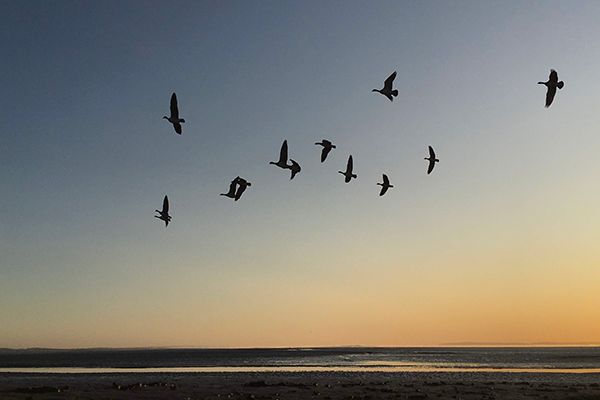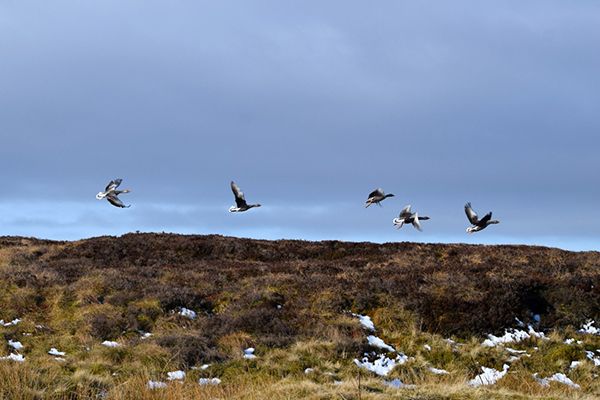Guidance for major grant applications
Background
This is the guidance for major grants. If you wish to make a small grant application, please download the guidance and application form by visiting the small grant guidance page.
If you wish to apply for a grant, please first complete an Expression of Interest form, which can be submitted at any time and can be found here.
Applicants are welcome to discuss their project idea with us in order to help shape it.
The BWF will review the Expression of Interest form and notify you if they would consider a formal application
Making an application
Major grant applications can be made once per year at the specified time using the standard application form and budget template. A call is typically made in May, but timings may vary between years.
Applications received after the deadline cannot be considered. Decisions about each application will be made within eight weeks and applicants will be notified of the decision within a further four weeks.
Financial support
The maximum size of a major grant is £100,000, though the amount may be lowered in some annual calls for applications.
The proposed project activities must be consistent with the amount requested. It is important to be realistic as to what can be achieved with the available amount and within the implementation period of the project.
Project duration
The maximum length of a project should be approximately 48 months beginning on the date the grant contract is signed.
Applicant eligibility
Grants are available to any civil society entity (for example, charity, Community Interest Company and other not-for-profit entities), local, national or international non-governmental and governmental organisation.
An application can be submitted on behalf of several eligible project partners. Partners participate in designing and implementing the project, and the costs they incur are eligible in the same way as those incurred by the lead partner.
Partners must satisfy the eligibility criteria as applicable to the lead partner. If awarded the grant contract, the partner(s) (if any) will become co-beneficiary (ies) in the project (together with the lead partner as coordinator and recipient of grant funds).
Project eligibility
Consideration is given to projects that fall within the following general categories:
- habitat protection and restoration
- preparation of site management plans identifying conservation needs and establishing necessary management policy
- measures to involve local inhabitants/user groups in the sympathetic management of important sites/habitats
- projects that assist the UK and its devolved governments in meeting international commitments for nature recovery.
Activity and cost eligibility
Ineligible activities are:
- the purchase of land, buildings or firearms
- activities which may adversely affect people and local communities or where these communities have not provided their broad support to the project activities
- the removal or altering of any physical cultural property (includes sites having archaeological, paleontological, historical, religious, or unique natural values)
- activities that duplicate work previously funded by the BASC Wildlife Fund and/or the WHCT.
Eligible costs include:
- Feasibility and preliminaries – surveys, plans, consents, licences, welfare/health and safety/risk mitigation, management/staff employment/travel
- Project work/research – contractors quotations, specialist quotations, plant/machinery, materials, site constraints/contingencies/cost risks
- Monitoring – management/staff/travel, professional fees.
For costs with a value in excess of £5,000, three price quotations from different suppliers must be obtained and kept with financial records.
Ineligible costs include:
- debts and debt service charges (interest), provisions for losses or potential future liabilities, exchange rate losses and purchases of land and buildings
- financial support to third parties through sub-grants.
Components of the project proposal
Application templates (technical and financial) are available online for submitting your proposal. The proposal must indicate how the project will be structured, managed and implemented.
Applicants must demonstrate the capacity to manage and implement successful projects. Proposals should include a clear logical framework demonstrating how activities will lead to outputs and results. Proposals should concretely describe anticipated impacts of the project and how they will resolve the problem(s) or threat(s) to be addressed within the timeframe of the grant. The proposal should also include a project monitoring plan with clear measurable indicators, such as:
- change in population numbers of target species
- measurable reduction of known threat to target species or its habitat
- enabling conditions for conservation such as improvement of management effectiveness.
Evaluation
The review process and the final decision on awarding the grant is expected to take a maximum of eight weeks following the receipt of proposals.
If approved, you will be informed that the project has been selected for funding. You will be asked to address any of the issues raised during review of the project and, if so, there may be a need to modify your original proposal. Once the key issues have been addressed, you will be asked to sign a grant agreement.
Notification of applicants
Applicants will be informed about the results of their application.
A brief explanation will be provided to applicants whose proposals are unsuccessful, but further discussion cannot be entered into.
Risk assessment and liabilities
Successful applicants will be required to demonstrate the appropriate risk assessment has been undertaken for this project. You will also be fully responsible for any required insurance and other liabilities.


